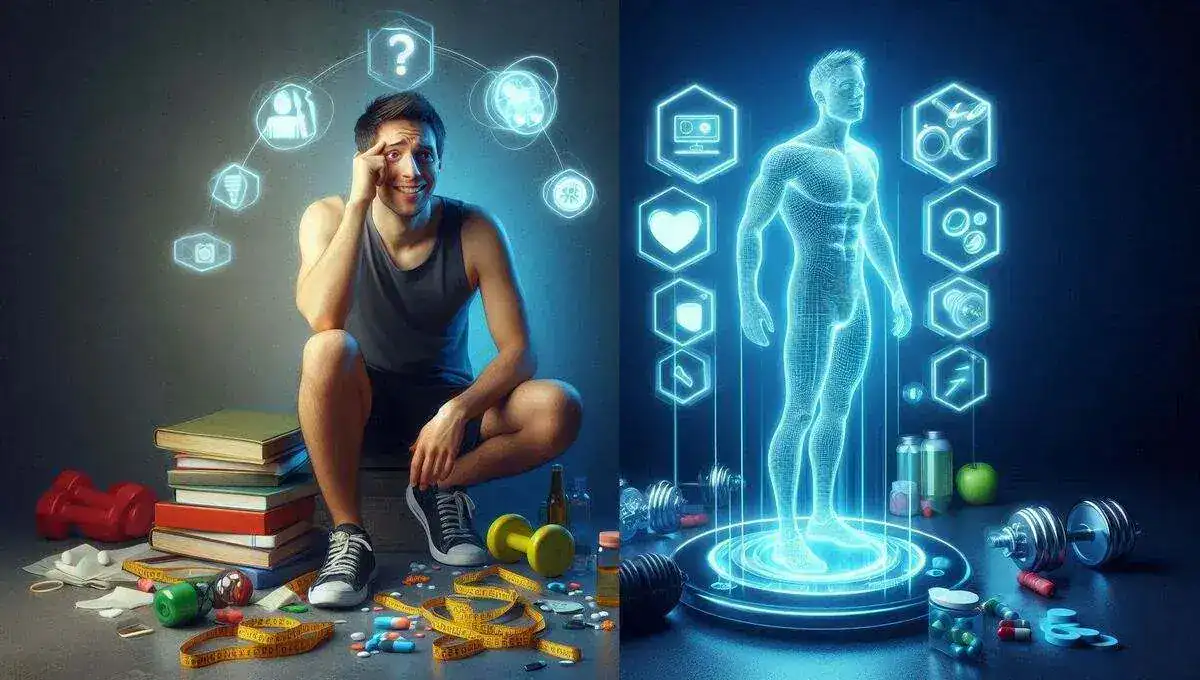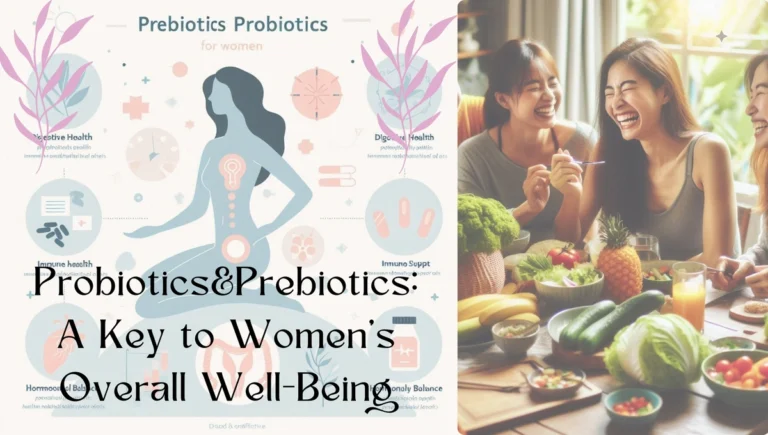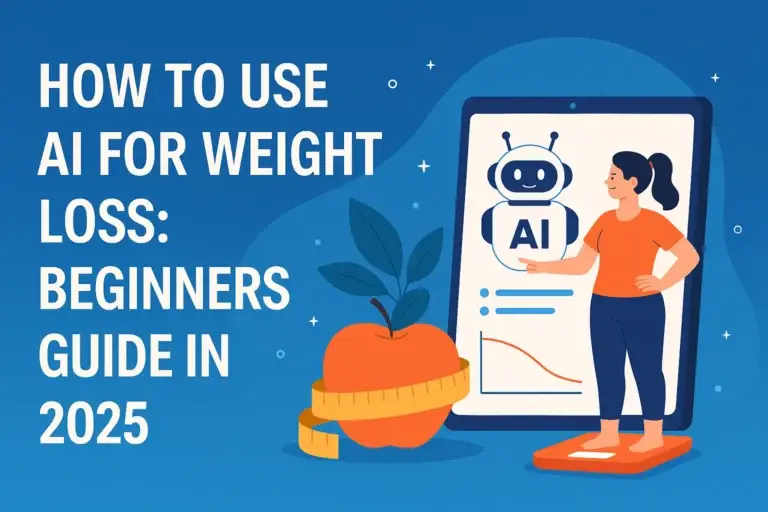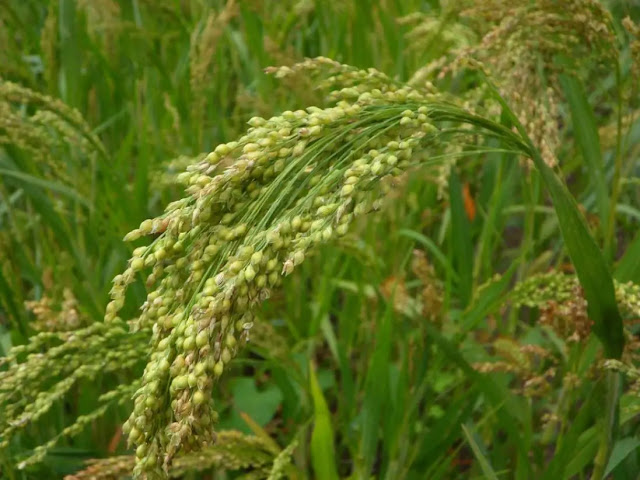How AI is Transforming Personalized Weight Loss Plans in 2025
Conventional diet plans often fail because they are not customised according to an individual — they ignore individual biology, habits and goals. But in 2025, we will say goodbye to one-size-fits-all because the development of “personalised weight loss plans” controlled by “AI weight loss” technologies”. These smart systems will adapt in real time by ‘analysing health data’, ‘capturing biometric data’ and using ‘machine learning for weight management’ to help users make lasting progress, not just short-term changes.
From “predictive analytics for weight loss” and “integration of wearable technologies” to “customised nutritional recommendations” and “personalised meal plans”, the focus is now on “sustainable weight loss” and “personalised weight management”. Supported by innovations in “genetics”, “gut microbiome” and “computer vision for food tracking”, AI is redefining what it means to get — and stay — healthy.
Why Personalized Weight Loss Plans Work Better Than Generic Diets
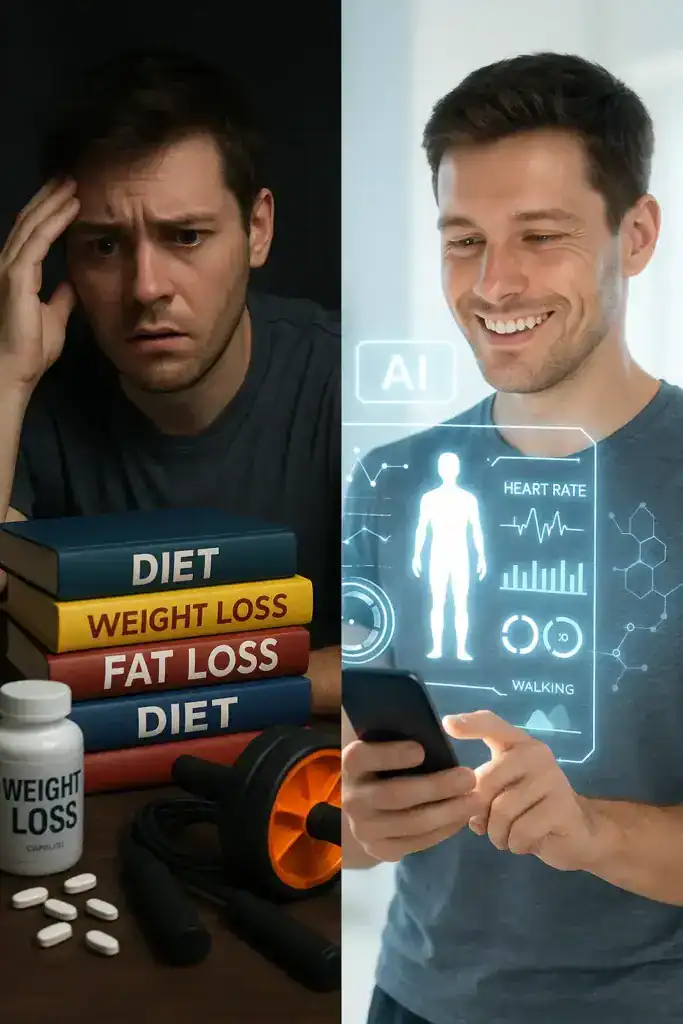
If you’ve ever followed a trendy diet and wondered why it worked for someone else but not for you, you’re not alone. The truth is, weight loss is not one-size-fits-all—and science is finally catching up.
The Science Behind Individualized Nutrition Plans
Each person’s body responds differently to carbs, fats, exercise, and stress. Studies show that even identical meals can trigger drastically different blood sugar responses between individuals. That’s why generic diets—like “low-carb for everyone” or “1,200 calories a day”—often fail. Individualized nutrition uses your personal data (such as age, activity level, and health history) to tailor a plan that actually works for you.
Lifestyle-Based Weight Management = Better Results
Sustainable weight loss isn’t just about what you eat—it’s also about when, why, and how you eat. AI-driven tools now assess your sleep patterns, stress levels, emotional triggers, and activity routines, creating lifestyle-aware plans. This approach leads to better adherence because it fits into your life, not against it.
The Rise of Precision Nutrition and Metabolic Health Tracking”
Thanks to wearable devices and smart sensors, it’s now possible to track key metabolic data in real time—like blood glucose, heart rate variability, or even gut response. This enables what’s called precision nutrition: an AI-driven system that adjusts your meal and workout recommendations based on your metabolic state, not just the number on a scale.
The result? Smarter, more sustainable weight loss that aligns with your body’s natural rhythms.
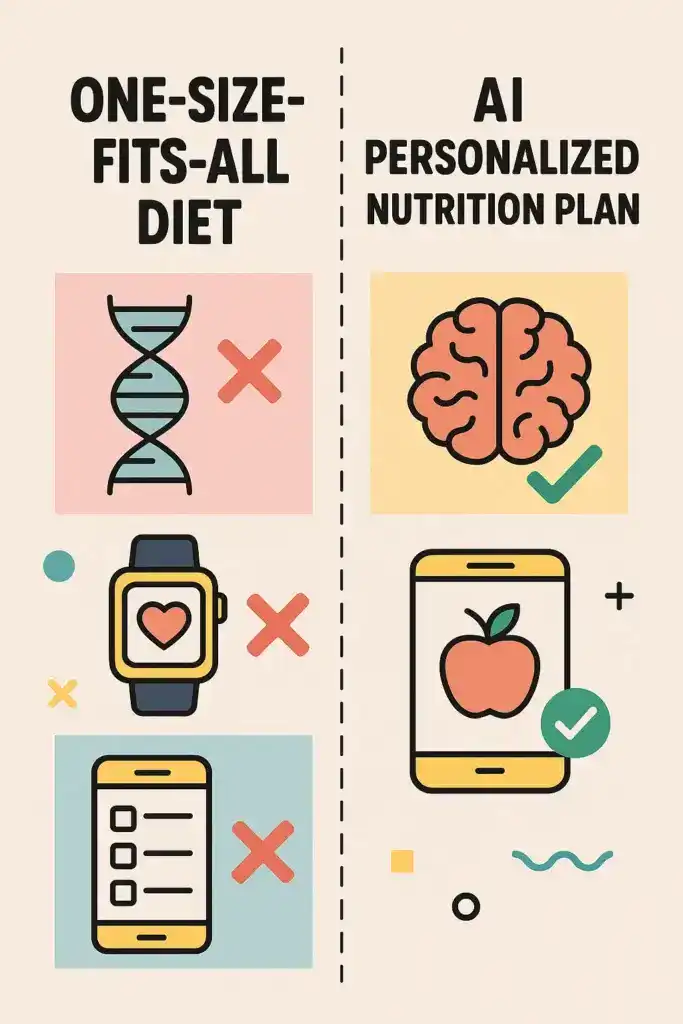
The Role of Artificial Intelligence in Fitness & Nutrition
Artificial Intelligence (AI) is not just reshaping industries—it’s completely transforming how we manage our health, fitness, and weight loss strategies. In 2025, AI is the silent coach behind millions of personalized fitness journeys, offering insights, support, and structure in ways that traditional methods never could.
What is AI in Health and Fitness?
“AI in health and fitness” refers to the use of intelligent algorithms and machine learning systems to gather, analyze, and act on user data—such as body composition, activity levels, and nutrition habits—in real time.
AI can:
1.Track physical activity and vitals using wearable tech.
2.Suggest exercise routines based on energy output and recovery.
3.Adapt meal plans to dietary needs and health goals.
4.Offer smart feedback just like a personal trainer or nutritionist.Instead of a one-size-fits-all plan, AI creates “hyper-personalized experiences” that evolve as you do.
AI + Machine Learning for Weight Loss: How It Works
“Machine learning”, a subset of AI, continuously learns from your behavior, preferences, and biometric data. Here’s how it fuels smarter fat loss:
1.Data Collection: AI gathers data from wearables, apps, food logs, sleep patterns, and workouts.
2.Pattern Recognition: It identifies trends like overeating on weekends or lower energy on Mondays.
3.Adaptive Coaching: Based on this, the AI suggests daily tweaks—like increasing protein intake, reducing workout volume, or improving sleep hygiene.
4.Predictive Adjustments: If weight stalls, it proactively adjusts your plan before you even realize you’re plateauing.
3.How AI Uses Health Data to Create Smart Weight Loss Plans”
In earlier days when weight loss meant simply stepping on a scale once a week. In 2025, AI-powered weight loss is built on a foundation of real-time data—pulled from the technology you already wear, use, and interact with daily.
Wearable Fitness Technology: Your Body’s Live Feed
Devices like Fitbit, Apple Watch, and Oura Ring do more than count steps. These smart health assistants continuously monitor your heart rate, sleep quality, activity level, and even stress patterns. AI systems use this biometric data to understand how your body responds to different routines—helping optimize workout intensity, rest days, and calorie burn with surgical precision.
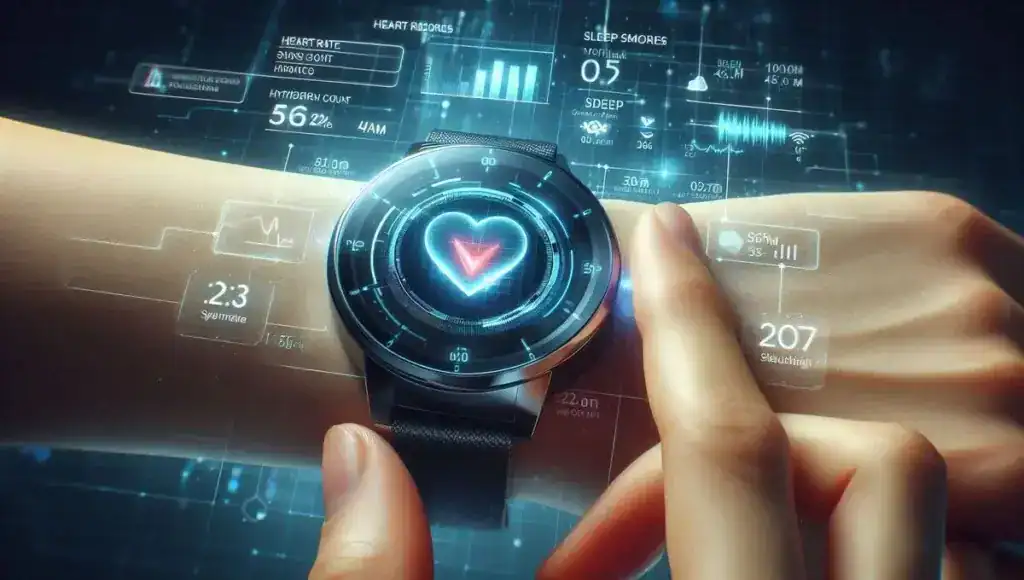
Mobile Health Apps & Food Logs: Smarter Tracking, Not Just Logging
Apps like MyFitnessPal, Lifesum, and Lose It! track your meals, macros, and calories—but AI takes this further. It analyzes your eating patterns, flags unhealthy habits (like late-night snacking or under-eating), and adjusts your daily targets based on your progress and preferences.
CGMs and DNA Testing: Deep Personalization for Metabolic Deficiency
Advanced users are now pairing AI with Continuous Glucose Monitors (CGMs) and DNA test kits.
-CGMs track your real-time blood sugar response to food—allowing AI to suggest meals that stabilize energy and reduce fat storage.
-DNA-based plans use your genetic profile to predict how your body metabolizes fats, carbs, and proteins—leading to highly personalized nutrition.
When integrated, this data allows AI to act like a biometric coach, adjusting everything from your meal timing to your carb intake with precision.
Customizing Diet Plans with AI: Beyond Calories and Macroscopically
For decades, weight loss advice revolved around one golden rule: “Eat fewer calories than you burn.” While tracking ‘macros’ (carbs, proteins, and fats) and ‘calories’ still matters, AI is now pushing the boundaries far beyond that old-school formula.
Smarter Macro Tracking & Calorie Recognition with ai
AI doesn’t just tally up calories—it understands your body’s unique nutritional needs. Modern apps can now “analyze your food log in real time”, detect patterns (like overloading carbs at night or missing protein in the morning), and adjust your macro targets accordingly.
Some AI systems even learn from your progress. If your weight plateaus, the AI might tweak your daily fat intake or suggest a shift in your meal timing—all without a human coach.
For Example: An AI tool notices you’re consistently low on fiber and suggests more legumes or greens in your next meal plan.
AI-Generated Meal Plans Based on Daily Behavior
Unlike static “eat this, not that” meal plans, AI-generated diets are dynamic and responsive. These systems can analyze everything from your:
recent workouts
sleep quality
stress levels
previous meal compliance
…and then build your “next meal plan” based on what your body needs “right now”.
For Example: let’s assume your wearable shows poor sleep and low steps today, the AI might recommend a lighter dinner and rest-based recovery meals instead of a carb-heavy plan.
This means “no two days look exactly the same”, because your body doesn’t operate the same every day.
Real-Time AI Food Recognition & Portion Analysis
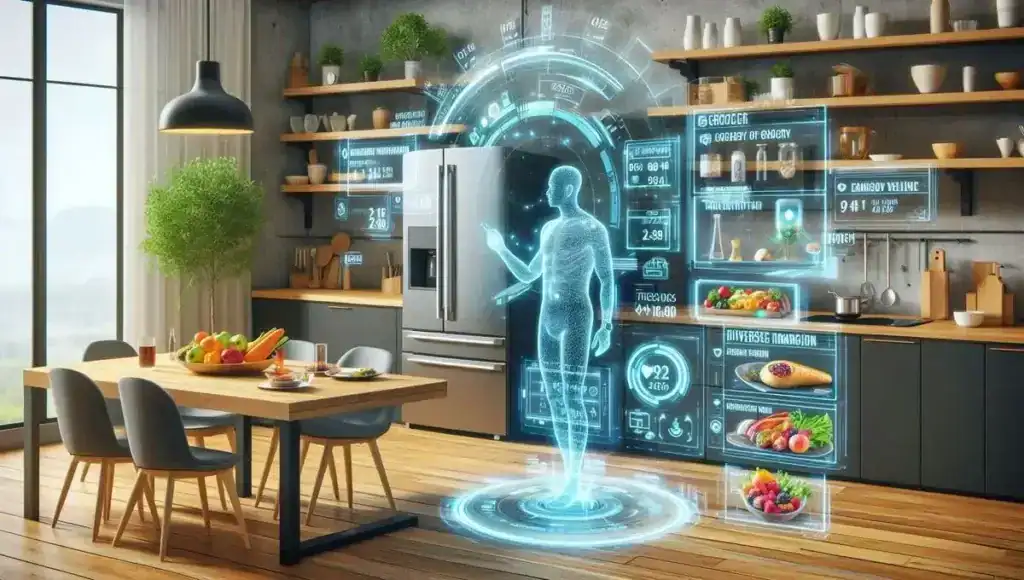
With smartphone cameras and AI image recognition, some apps now let you “take a photo of your meal” and get instant insights:
-Estimated calories
-Macronutrient breakdown-Portion size analysis
-Warnings for high-sugar or high-fat content
This tech removes the need to manually log every bite—and it improves “accuracy” by analyzing what’s actually on your plate, not just what you think is.
For Example: You snap a pic of your bowl of pasta, and the app tells you it’s 60g carbs, 12g fat—and recommends cutting the portion by 25% based on your daily goal.
The Big Pictures
AI makes diet customization a “real-time, feedback-driven experience”. Instead of trying to stick to a rigid plan, you get “flexible, intelligent guidance” that aligns with your behavior, physiology, and preferences.
This is how AI takes your nutrition from generic to genuinely ‘personal’.
5.DNA-Based and Habit-Based Personalization: The Next Frontier
We’re entering a new era of weight loss—one where your “genes and habits” shape your diet plan more than general rules or calorie calculators ever could.
How Genetic Nutrition Analysis Influences Diets
Your DNA holds powerful clues about how your body processes food. “Genetic nutrition analysis” can reveal:
-Whether you’re sensitive to carbs or fats
-How quickly your body metabolizes caffeine or lactose
-If you’re prone to inflammation from certain foods
-What type of exercise your body responds to best
With this data, “AI systems create a diet plan designed for your unique genetic blueprint”—not someone else’s.
For Example: Your DNA results show a slow metabolism of fat and poor glucose control. The AI limits saturated fats and suggests moderate carbs with a focus on lean proteins and fiber.
This is called “precision nutrition”, and it’s one of the fastest-growing frontiers in weight loss science.
Behavioral AI That Detects Emotional Triggers’
Weight loss isn’t just biological—it’s deeply psychological. Emotional eating, stress snacking, and late-night binges are common barriers.
That’s where “behavior change algorithms” come in.
AI tools (like Noom, Lark, or Youper) analyze patterns in your behavior—like skipping breakfast or logging a sudden surge in calorie intake after a stressful day. These tools flag ‘emotional triggers’ and send real-time interventions like:
-Mindful eating reminders
-Motivational messages
-Breathing or journaling exercises
For Example: The AI detects that every Sunday night, your food log includes high-sugar snacks. It identifies this as emotional eating and nudges you to plan a comforting but healthier snack ahead of time.
AI Coaching That Adapts to Your skip -How
Traditional plans punish you for “falling off track.” But AI coaching is adaptive and non-judgmental.
If you binge, skip workouts, or stop logging, it doesn’t guilt you—it “recalculates your plan”, adjusts expectations, and gently helps you get back on course.
For Example: After a 3-day binge, your AI coach reduces your goal pace temporarily, suggests high-satiety meals to regain control, and tracks your mood to prevent future triggers.
This combination of “genetic insights + habit-aware coaching” makes AI incredibly powerful—not just for weight loss, but for sustainable, long-term change.
6.AI-Powered Coaching: Smarter Motivation and Habit Tracking
Most people don’t struggle with knowing what to do to lose weight—they struggle with doing it ‘consistently’. That’s where “AI-powered coaching” comes in. Unlike static apps or generic advice, these smart systems blend psychology, habit science, and motivation triggers to help you stick with your plan.
AI Mental Coaching and Psychology-Based Prompts
AI coaches like ‘Noom’ and ‘Lark’ don’t just count your steps or track your meals—they act like a digital ‘behavioral therapist in your pocket’.
They use “psychology-based weight loss techniques” like:
-Cognitive Behavioral Therapy (CBT)
-Mindfulness nudges
-Motivational interviewing
These apps prompt you with questions like:
> “What triggered your craving today?”
>“How did you feel after eating that snack?
”By helping you reflect, they build “emotional awareness” around food and exercise habits.
Result: You begin to recognize unhealthy patterns, like stress-eating, and replace them with smarter choices—without shame or guilt.
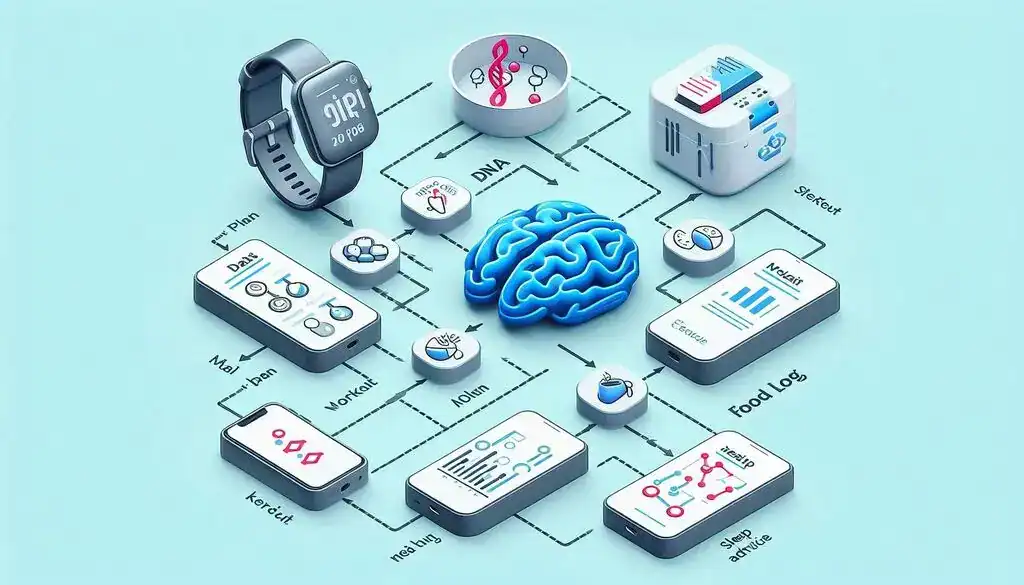
Apps Like Noom and Lark: Automated Progress Monitoring
Traditional plans might require manual check-ins. But “AI-powered tools monitor progress in real time” using:
-Step count & activity data
-Sleep quality
-Food logs & streaks
-Mood check-ins
-Missed goals or skipped mealsWhen these systems detect dips in performance or motivation, they ‘adjust goals’, recommend rest, or deliver supportive messages before you burn out.
For Example: If your activity drops for 3 days, Lark might gently suggest a walk + a motivational message like:
>“You’ve already come so far. A short walk today is still a win.”
This real-time feedback loop is what makes “habit change sustainable”.
Digital Health Coaching for Long-Term Results
The power of AI coaching completely lies in ‘consistency’ and ‘adaptability’.Unlike a human coach you see once a week, “AI is always on”—learning from your patterns, adapting goals, and providing support exactly when you need it.
These tools promote:
-Daily accountability
-Behavior tracking without judgment
-Emotional motivation at just the right moment
-Flexible coaching that fits your lifestyle
Over time, this results in “lasting habit change”—which is the real key to long-term weight loss success.
Key takeaway:
AI-powered coaching isn’t just about what you eat or how you move—it’s about how you “think, feel, and behave”. And that makes all the difference.
7.Limitations & Concerns: Is AI a Perfect Weight Loss Solution?
While AI has brought innovation and convenience to the world of weight loss, it’s important to understand that it’s not without flaws. Like any tool, it works best when you’re aware of its limitations—and how to work around them.
1. Privacy Risks in Health App”
When you use AI-powered fitness or nutrition apps, you’re often sharing deeply personal health data—like:
-Your weight, sleep patterns, and exercise habits
-What you eat and how often
-Mood, menstrual cycle, and even genetic data (in some apps)
This sensitive information is stored in the cloud or app servers and may be:
-Used to train algorithms
-Shared with third parties (e.g., for ad targeting)
-At risk in the case of a data breach�
Concern: Not all apps are transparent about how your data is used. Some don’t meet medical-grade privacy standards.
What to look for:
-Apps that comply with GDPR, HIPAA, or other privacy laws
-Clear privacy policies
-The option to delete your data permanently.
2. Bias in AI Recommendations”
AI is only as fair as the data it’s trained on. If the training data lacks diversity (in gender, ethnicity, body types, etc.), the AI may:
-Misunderstand your body’s response to food
-Recommend ineffective or unrealistic goals
-Fail to recognize culturally specific eating habits or health needs
Example: An AI might suggest high-dairy diets that don’t align with someone who’s lactose intolerant—a trait more common in certain ethnic groups.
This is known as algorithmic bias, and it’s a growing concern across all health tech platforms.
3. Why Human + AI Hybrid Coaching Works Rest
While AI excels at data processing, pattern detection, and 24/7 feedback, it still lacks empathy and real-world intuition.
That’s where human support comes in:
-A human coach can help when emotional motivation is needed
-They can provide context AI doesn’t see (e.g., grief, stress, trauma)
-They personalize not just the data—but the experiences.
Best practice: Use AI tools for tracking and personalization + check in with a human expert (coach, nutritionist, or therapist) for emotional and strategic support.
Final Takeaway
Ai is an incredibly powerful partner in weight loss—but not a perfect one. It’s smart, but it’s still learning. And just like your health journey, the best results come from balance—technology + human touch, personalization + self-awareness.
The Future of Personalized AI Weight Loss in 2025 and Beyond
We’re standing at the edge of a revolution in health and fitness—one where ‘AI not only tracks your progress’ but actively ‘guides your decisions’ in real time. The days of one-size-fits-all plans and manual tracking are fading fast. What’s next? Let’s take a look at the exciting future of “AI-powered, ultra-personalized weight loss”.
1. Next-Gen Wearable Health Gadgets (2025 and Beyond)
Fitness wearables are becoming more than just step counters. In 2025, expect smart devices that “analyze your metabolism, glucose levels, hydration, stress, and even sleep cycles—continuously”.
Think:
AI-integrated smart rings (like Oura Gen4):
that give personalized recovery suggestions
Next-gen CGMs (Continuous Glucose Monitors):
for non-diabetics to tailor their meals based on blood sugar response
Smart patches:
that track hormone fluctuations, hydration, or fat oxidation in real time.
These tools feed “rich biometric data” into AI engines—turning raw numbers into actionable, daily advice tailored to your biology.
Predictive Analytics: AI That Sees What You Need Before You Do
AI is becoming more ‘anticipatory’ than reactive. Using ‘predictive analytics’, your digital coach will soon be able to:
-Spot early signs of burnout or plateau
-Predict when you’re likely to break a habit or binge eat
-Adjust your workout schedule based on your body’s readiness (HRV, sleep quality, etc.)
For Example: You didn’t sleep well and your heart rate variability is low—so your AI app suggests a stretching session instead of an intense HIIT class.
Fully Automated, Self-Adjusting Fitness & Diet Plans
We’re heading toward AI systems that act like a ‘real-time, full-body operating system’:
-Adjusting calories and macros daily based on food logs, weight, activity, and glucose response
-Recommending your meals and groceries via integration with kitchen apps or delivery platforms
-Tweaking your workout split based on performance Data.
Imagine: You just finished a stressful work week. Your AI recalibrates your macros to increase magnesium-rich foods, shortens your workout, and encourages mindfulness to prevent burnout.
Bonus Vision: Global Health AI Ecosystem
In the future, your AI weight loss app won’t be standalone. It will sync with:
-Your wearable devices-Your digital grocery cart
-Your smart scale and sleep tracker
-Even your “telehealth provider or insurance app”
This “hyperconnected AI health ecosystem”means your plan is always in sync with your actual life—and constantly learning from it.
Final Takes way:
The future of personalized AI weight loss isn’t just smarter—it’s “predictive, adaptive, and fully integrated” into your lifestyle.
Soon, AI won’t just help you lose weight. It’ll help you live better, every day, without needing to overthink the process.
8.Conclusion: Is AI the Future of Weight Loss Personalization?
After exploring how AI is reshaping the weight loss journey—from “real-time habit tracking” to “DNA-based diet plans”—one thing becomes clear:
Artificial Intelligence isn’t just a trend. It’s the new foundation for personalized health.
Let’s quickly recap:.
-AI taps into your *”wearable tech, food logs, sleep data, and even genetics”.
-It creates “adaptive, real-time plans” based on your unique biology and daily habits.
-It offers “mental coaching, emotional awareness, and motivation triggers”—all without the cost of a personal trainer or nutritionist.
-It helps you stay “accountable, efficient, and consistent”, using precision nutrition and smart Recommendations.
In short: AI helps you lose weight smarter, not harder.
Why It Matters
Traditional diet plans fail because they ignore you—your body, your goals, your lifestyle.
AI succeeds because it “learns about you”, personalised every detail, and evolves with your progress.
And the best part? These tools are already here—and rapidly improving.
👉 Ready to Start?
If you’re serious about getting in shape using “intelligent, customized weight loss solutions”, don’t guess your way forward.
Check out our “Top 10 AI Weight Loss Apps of 2025” — a handpicked list of the best tools that can help you apply everything you’ve just learned.

